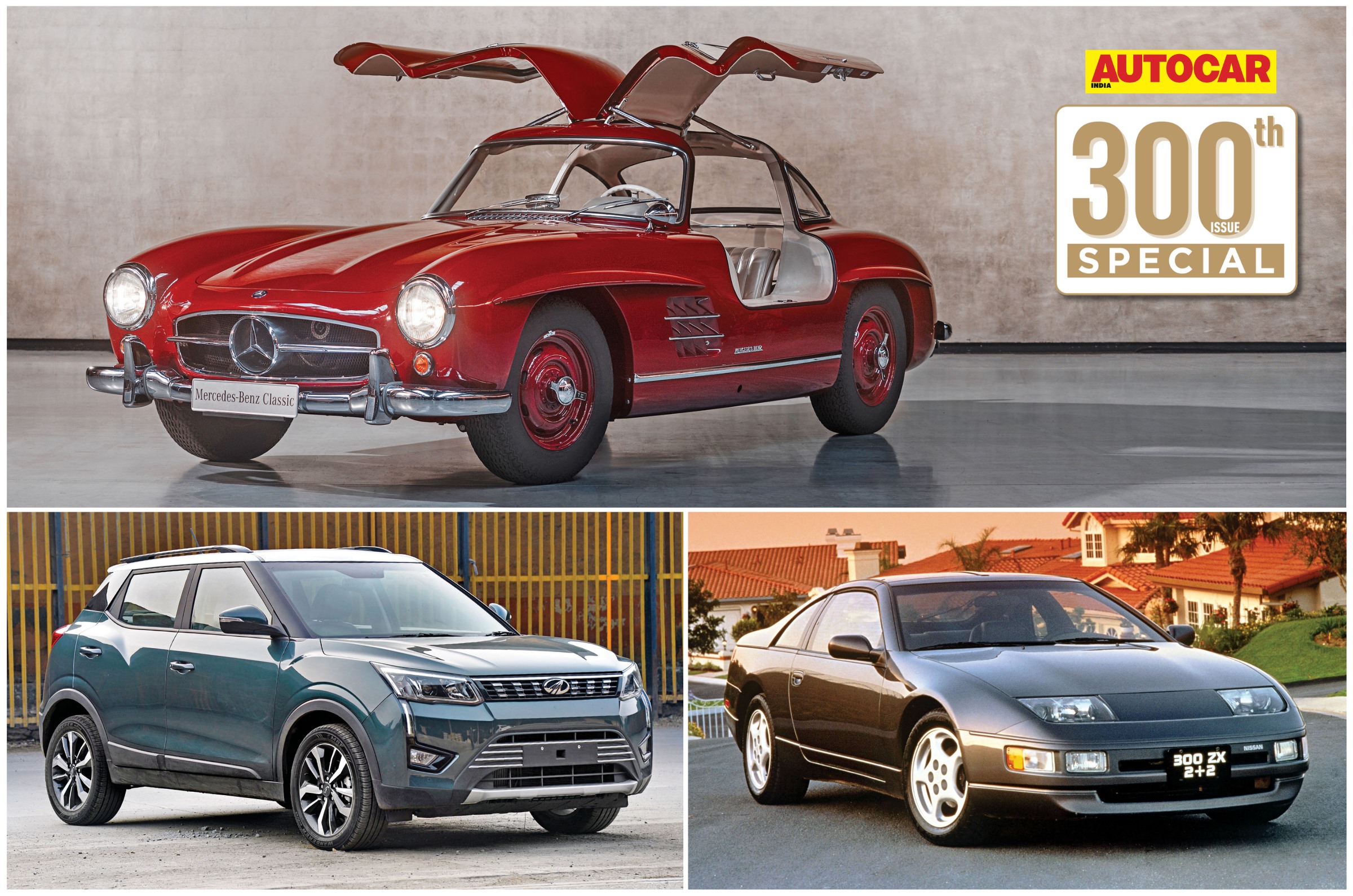
Mercedes-Benz 300 SL “Gullwing”

The 300 SL popularised the top-hinged doors, which earned it the “Gullwing” moniker. Considered by some to be the first modern supercar, it was based on the 300 SL race car (W194) that made its debut in 1952 and went on to be quite successful. Revealed in February 1954, the 300 SL Coupé was succeeded by the iconic 300 SL Roadster (W198) in March 1957. Both were powered by a 215hp, 3.0-litre straight-six engine, which helped the cars reach speeds of 250kph.
BMW Isetta 300

It’s a little-known fact that it was an Italian refrigerator maker called Iso that first made the Isetta. At the 1954 Turin Car Show, BMW discovered the IsoIsetta and acquired the licensing rights to produce it. BMW’s iconic bubble-shaped three-wheeler weighed just 350kg and first used a 12hp, 250cc engine when it was introduced in 1955. However, a year later, it got the 300 suffix, which denoted the larger 13hp, 300cc engine that was used. By 1962, when the Isetta was discontinued, BMW had sold 1,61,728 units of the model.
Nissan 300ZX

While it was called the Fairlady Z in its home market of Japan, the 300ZX – named 300 to denote its evolution over the 240 and 280 Z models – boasted of the brand’s first 60-degree V6 engines (2.0-litre and 3.0-litre). These engines won multiple awards over the two generations it was on sale, from 1983 to 2000, becoming something of a cult classic. The sleek two-door sportscar made a name for itself in the North American market, particularly with the second generation, which came in coupe, convertible and targa body styles and in two-seater and 2+2 configurations.
Chrysler 300

The Chrysler 300 was revealed in 2005 as a reinterpretation of the iconic sedan from the 1950s and 60s. Its name was meant to underline the 300hp the 1955 model produced. In its first-gen (2005-2010) and second-gen (2011-2023), the new 300 shared a lot with the Dodge Charger, from its platform to the V6 and V8 engines. Called the poor man’s Rolls-Royce by some, this sedan was discontinued just eight months ago.
Mahindra TUV300, XUV300

While not technically ‘300’ – it’s meant to be pronounced three-double-O – the Mahindra duo are colloquially known by the numeric moniker instead, thus earning their place on this list. The three-double-O names were chosen due to chairman Anand Mahindra’s belief that a name ending with the letter ‘O’ would bring the company luck, as it did with robust sales of the Scorpio and Bolero.
Mahindra’s 7-seater compact SUV – the TUV300 – was launched in India in September 2015 and was effectively replaced by the Bolero Neo in 2021. It came with an 85hp, 1.5-litre diesel engine, an auto start-stop system, an AMT gearbox option, and a decent number of features for its time. In 2016, the TUV300 got a more powerful 100hp engine and was given a more comprehensive facelift in 2019. The brand also introduced a 9-seater TUV300 Plus later.

The XUV300 was based on the SsangYong Tivoli, and the compact SUV marked a return to Mahindra’s double-O nomenclature after the Marazzo MPV and Alturas G4. Some units are still available at select Mahindra dealerships despite the model being replaced by the Mahindra XUV 3XO in April 2024. Brought out in February 2019, it came with 110hp, 1.2-litre turbo-petrol and 117hp, 1.5-litre diesel engine options, with AMT options following in July 2019. In order to face the increasing competition in its space, the XUV300 was updated with more features and a more powerful 131hp 1.2-litre direct injection turbo-petrol in October 2022.
Also see:
All cars, SUVs under Rs 10 lakh with a sunroof



